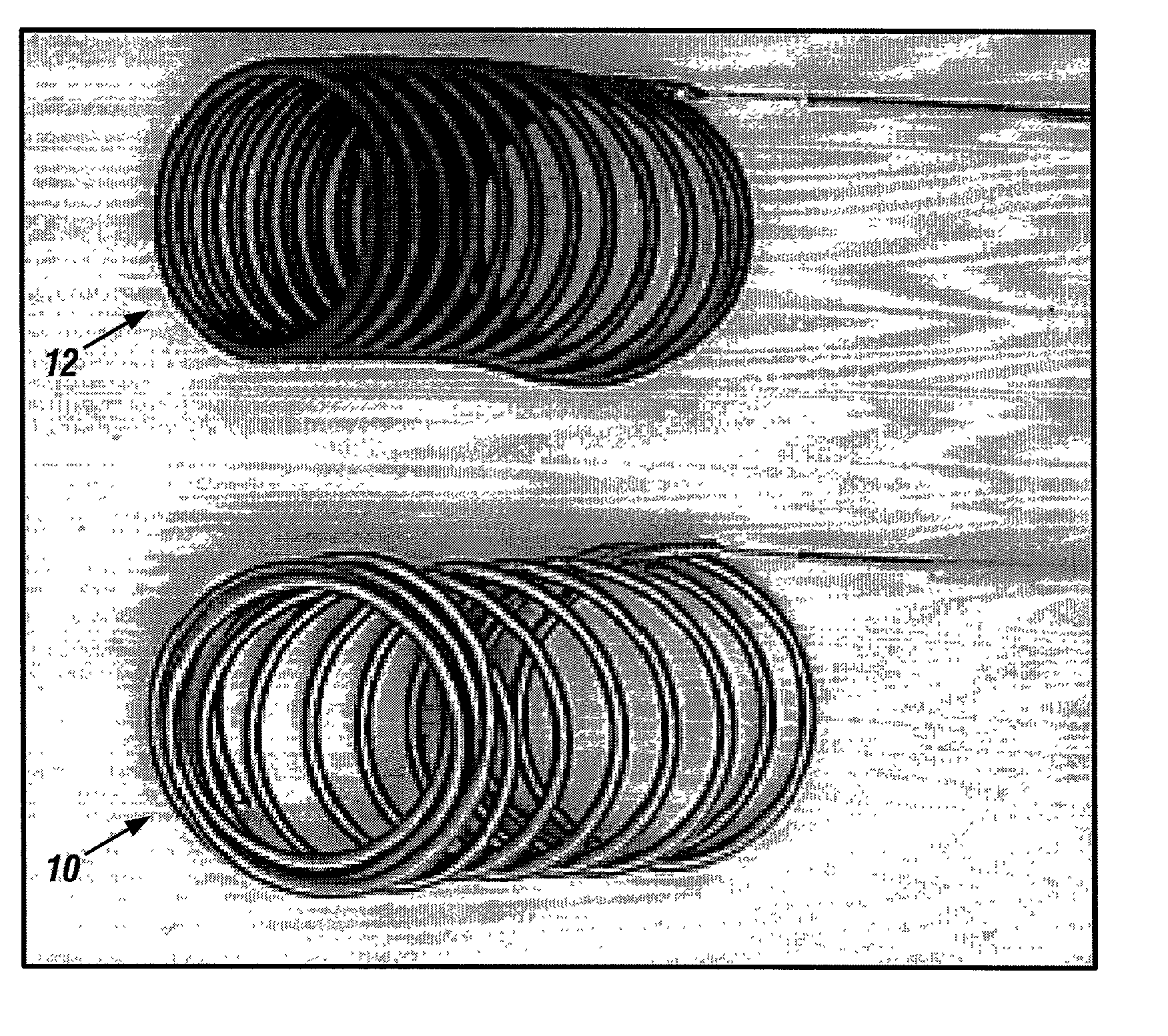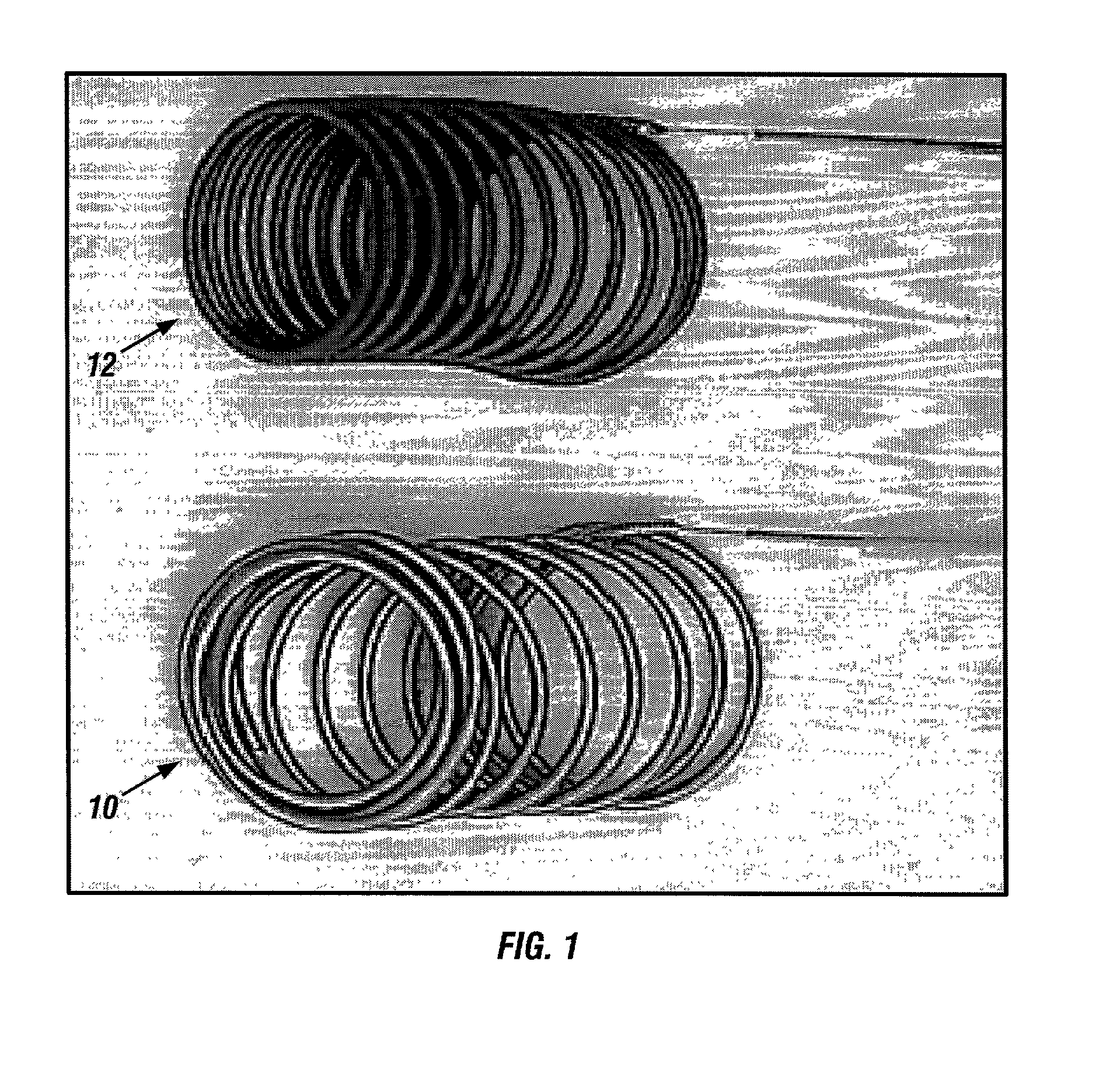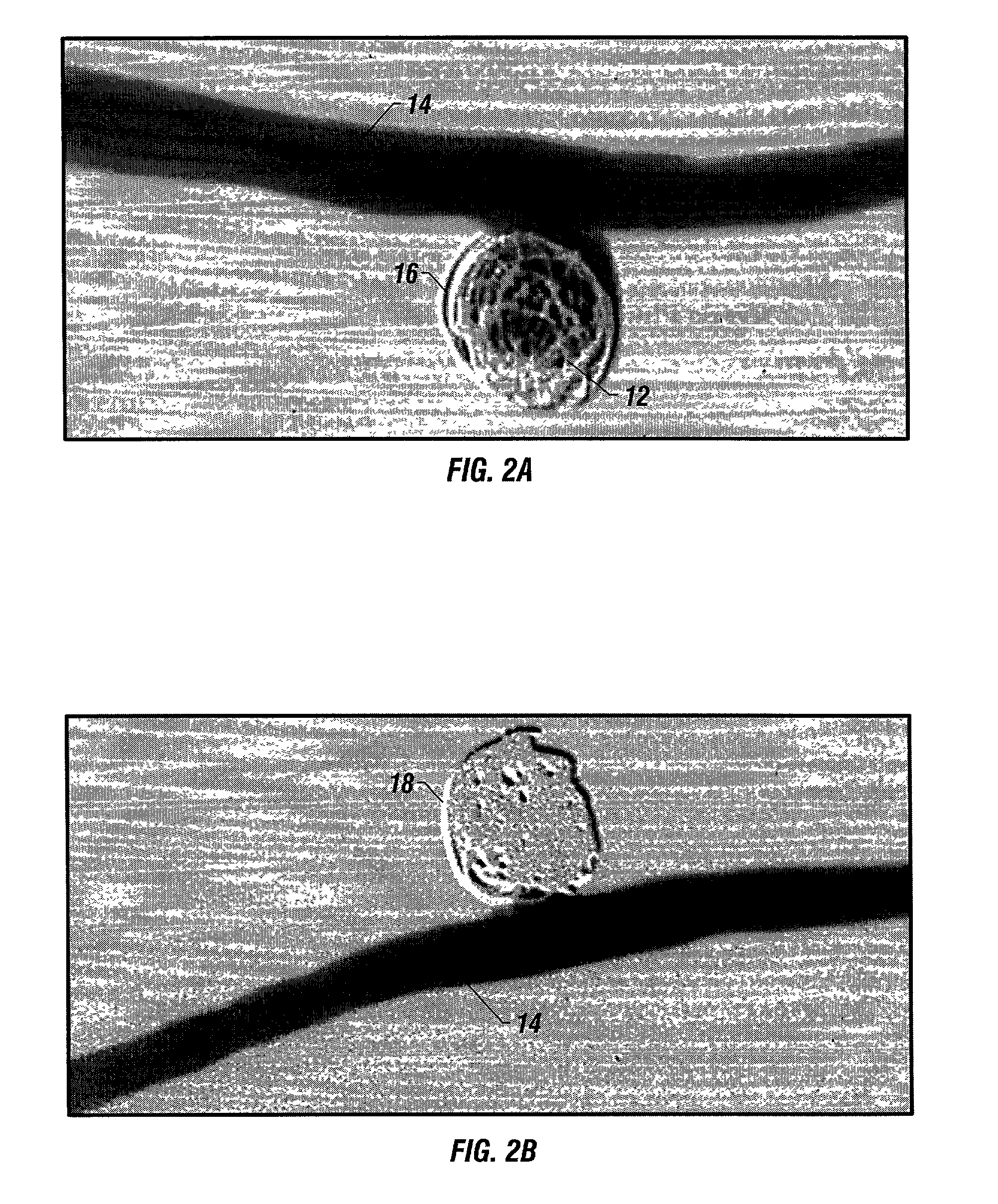Bioabsorbable polymeric implants and a method of using the same to create occlusions
a bioabsorbable polymer and implant technology, applied in the field of surgical and endovascular interventional instruments, can solve the problems of more often seen technical limitations, recanalization of aneurysms, and critical evaluation of long-term anatomical results of aneurysms treated with metal coils
- Summary
- Abstract
- Description
- Claims
- Application Information
AI Technical Summary
Problems solved by technology
Method used
Image
Examples
Embodiment Construction
[0046] The implants of the invention may be placed within body lumens, e.g., blood vessels, Fallopian tubes, etc., of any mammalian species, including humans. The implant coils are made of biocompatible and bioabsorbable polymers or proteins. Examples of bioabsorbable polymers that have been used in the illustrated embodiment to make Intraluminal implants include but are not limited to polyglycolic acid, poly.about.gycolic / poly-L-lactic acid copolymers, polycaprolactive, polyhydroxybutyrate / hydroxyvalerate copolymers, poly-L-lactide, polydioxanone, polycarbonates, and polyanhydrides. Examples of bioabsorbable proteins that have been used in the illustrated embodiment to make Intraluminal implants include but are not limited to collagen, fibrinogen, fibronectin, vitronectin, laminin and gelatin.
[0047] To achieve radioopacity, the bioabsorbable polymer coils may be coated or mixed with radioopaque materials such as tantalum or platinum. The bioabsorbable polymer or protein itself may...
PUM
| Property | Measurement | Unit |
|---|---|---|
| diameter | aaaaa | aaaaa |
| diameter | aaaaa | aaaaa |
| diameter | aaaaa | aaaaa |
Abstract
Description
Claims
Application Information
 Login to View More
Login to View More - R&D
- Intellectual Property
- Life Sciences
- Materials
- Tech Scout
- Unparalleled Data Quality
- Higher Quality Content
- 60% Fewer Hallucinations
Browse by: Latest US Patents, China's latest patents, Technical Efficacy Thesaurus, Application Domain, Technology Topic, Popular Technical Reports.
© 2025 PatSnap. All rights reserved.Legal|Privacy policy|Modern Slavery Act Transparency Statement|Sitemap|About US| Contact US: help@patsnap.com



